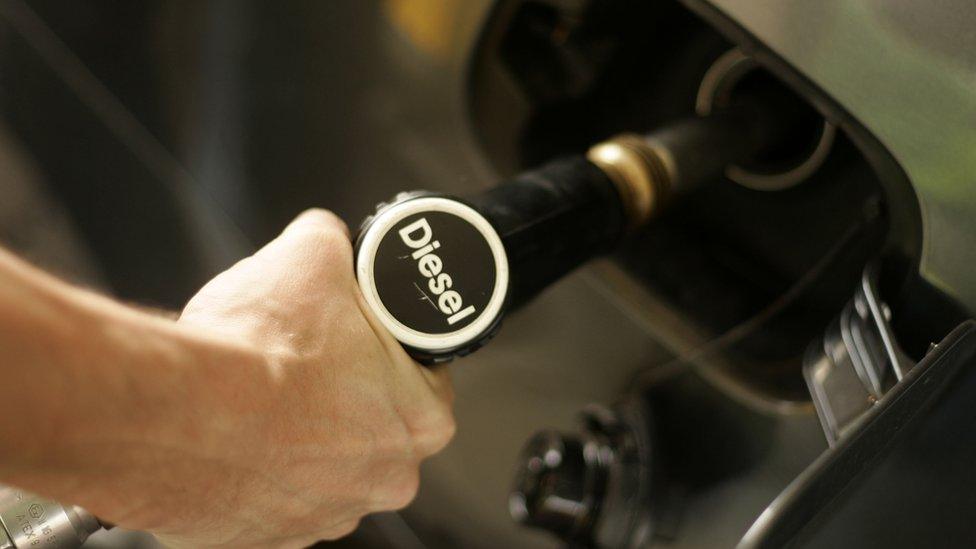Vehicles to be scrapped under Ulez head to Ukraine
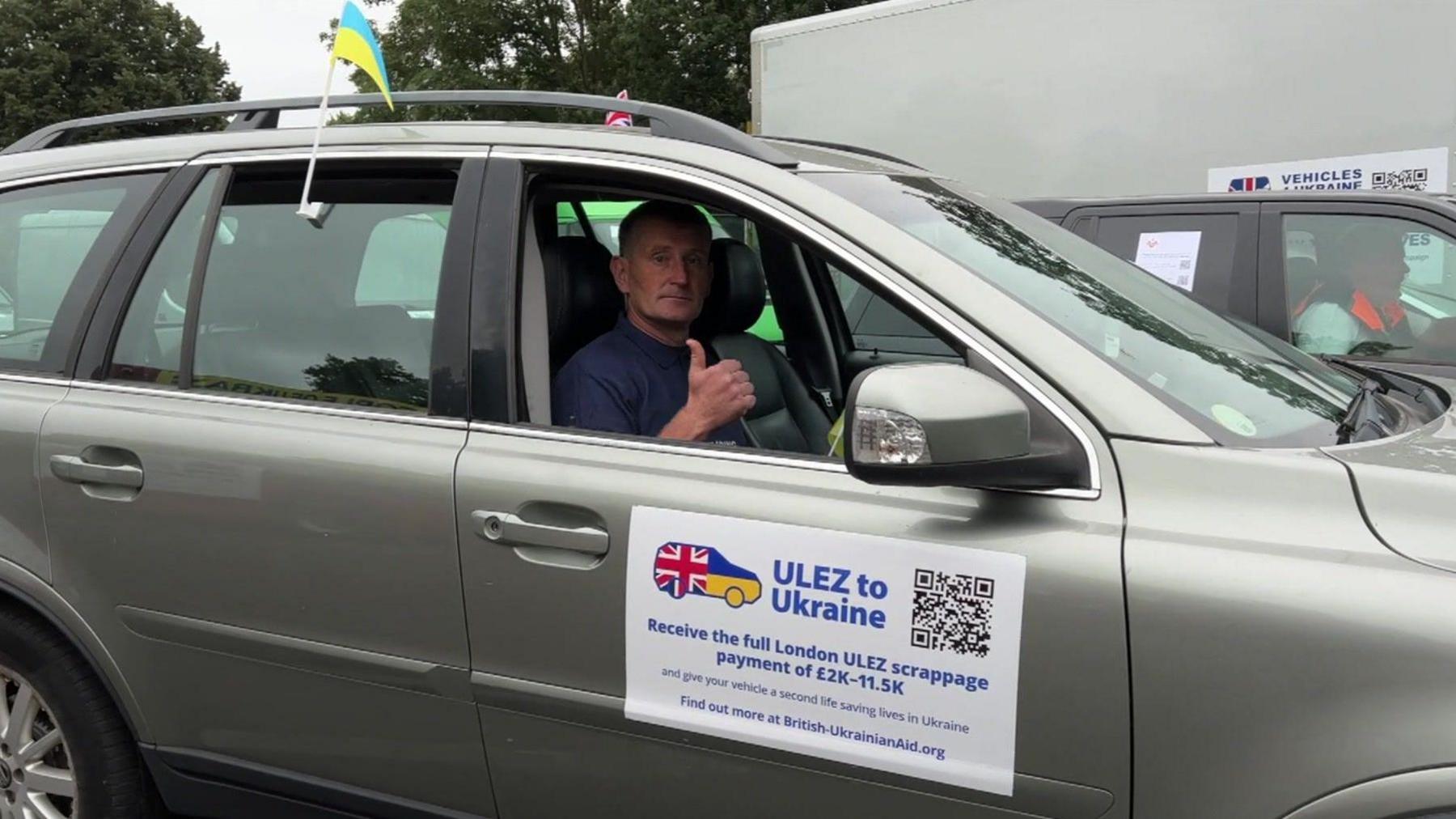
The vehicles are making the four-day journey to eastern Ukraine
- Published
A convoy of more than 50 vehicles, many of which were donated through London's Ultra Low Emission Zone (Ulez) scrappage scheme, has set off to deliver aid to Ukraine.
The fleet, which also included a red London bus, left the Ukrainian Embassy in the capital on Thursday.
It is expected to take four days to reach Kharkiv in Ukraine's war-torn east.
The convoy has been loaded with supplies from aid groups based in Berkshire, Oxfordshire and Wiltshire.
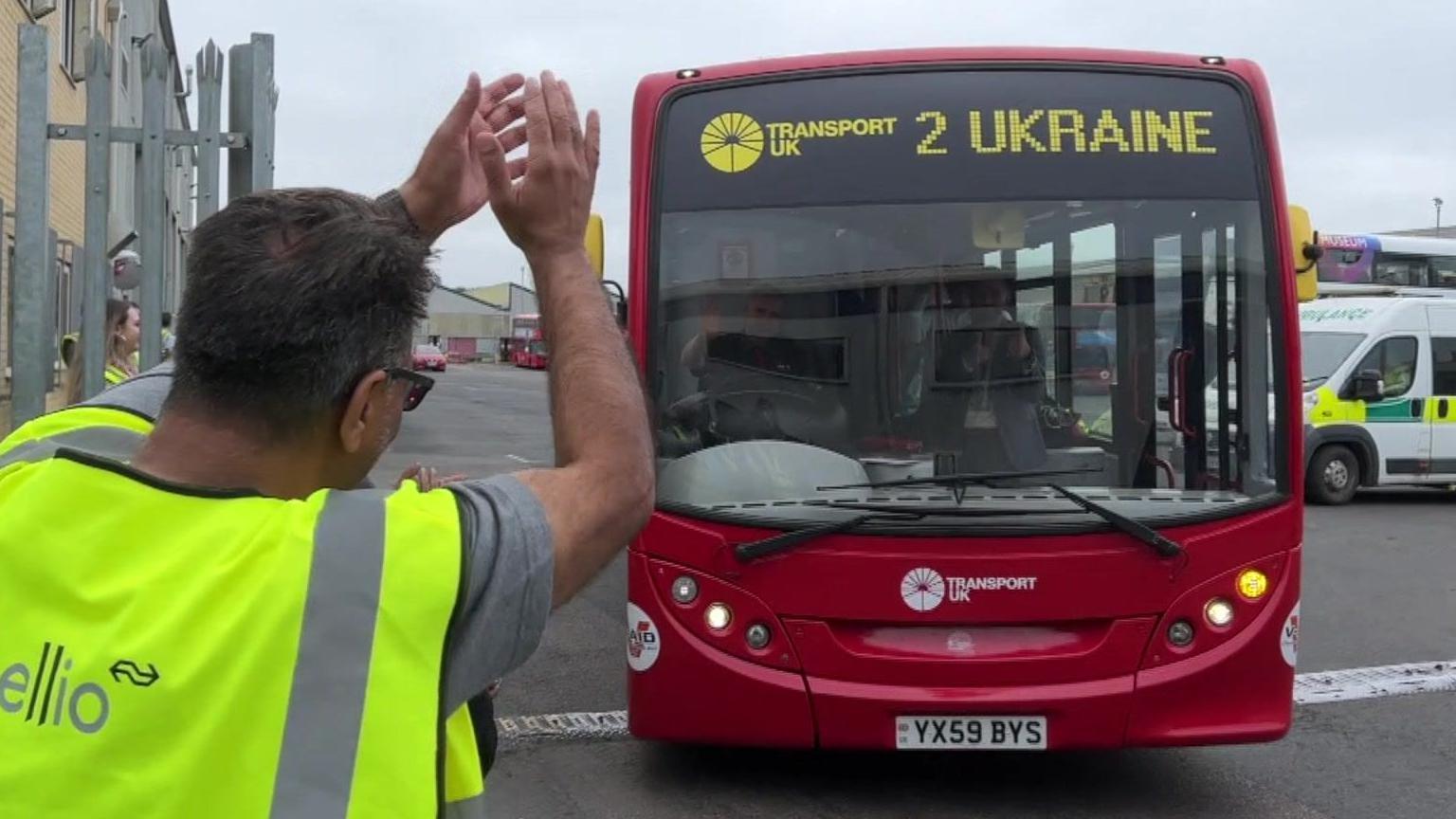
A red London bus set off packed with aid
The Ulez scrappage scheme enables Londoners to claim up to £2,000 for scrapping non-compliant cars.
A partnership between Transport for London (TfL) and the British-Ukrainian Aid charity saw some of the scrapped vehicles donated to the humanitarian cause.
A London bus also joined the convoy, used to transport aid including food, clothing and stretchers.
Once in Kharkiv, the vehicles will all be distributed to local charities.
The red bus will be donated to charity Peaceful Heaven of Kharkiv and used to evacuate civilians from hot spots in and around the city.
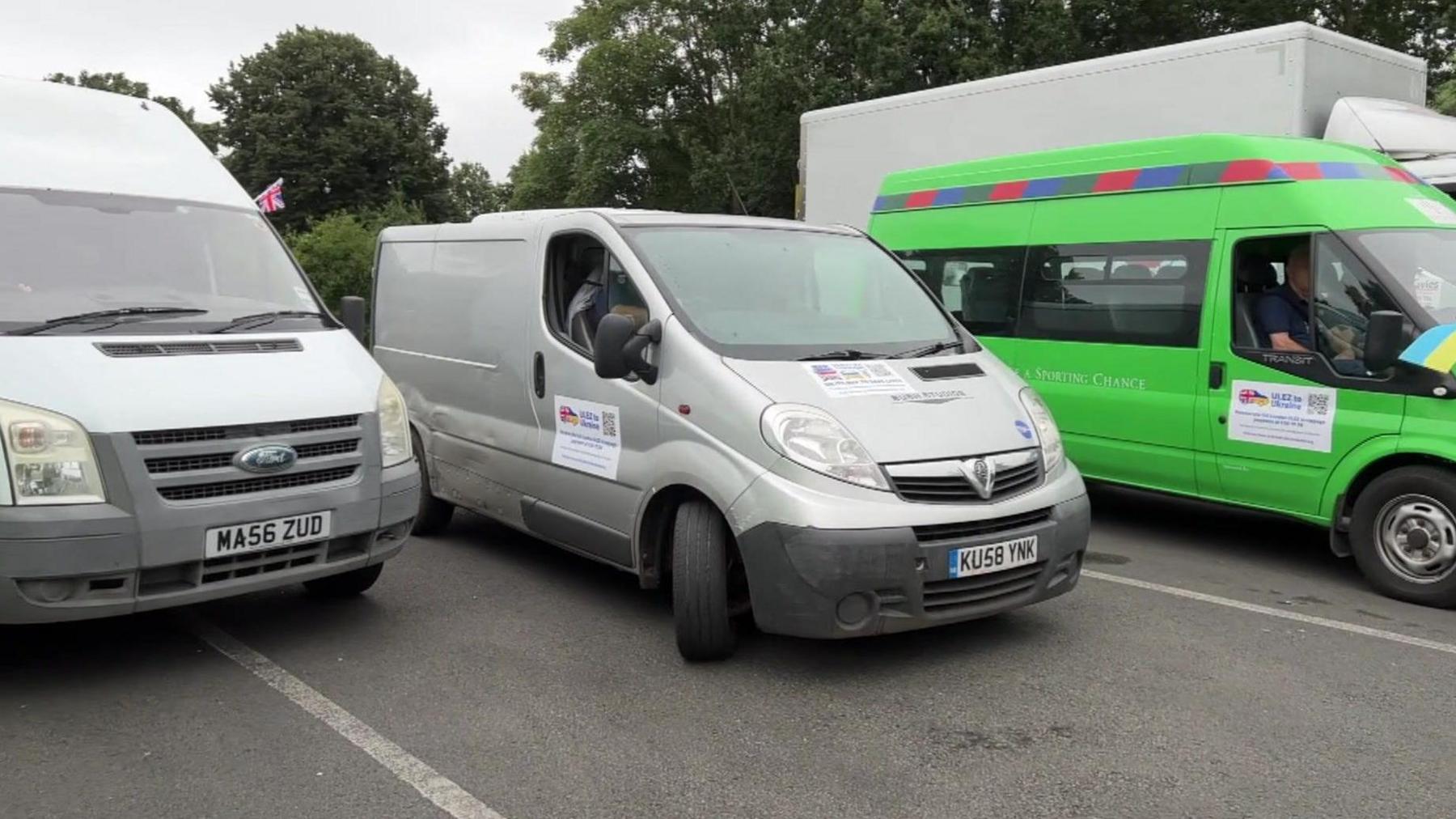
Once in Kharkiv, the vehicles will all be distributed to local charities
Steph Wilson from the Help Ukraine Group Support (HUGS), based in Hungerford, Berkshire, said this meant the fleet would be a "double gift" to the Ukrainian city.
"The benefit is the vehicles actually stay out there. It's the gift of the vehicle plus all the humanitarian aid with which they're filled," she said.
HUGS, along with a group based in Abingdon, Oxfordshire and the Swindon Humanitarian Aid Partnership (SHAP), has donated some of the supplies being taken to the front line.
Mike Bowden, chair and founder of SHAP, said: "Our laser focus is to maximise the number of vehicles for humanitarian use in Ukraine.
"Whether evacuating the injured, the elderly or children or delivering food or medical aid, each vehicle will make a real difference to the lives of ordinary Ukrainians and save lives,” he added.
Follow BBC South on Facebook, external, X (Twitter), external, or Instagram, external. Send your story ideas to south.newsonline@bbc.co.uk, external or via WhatsApp on 0808 100 2240, external.
Related topics
More from the BBC
- Published20 May 2024
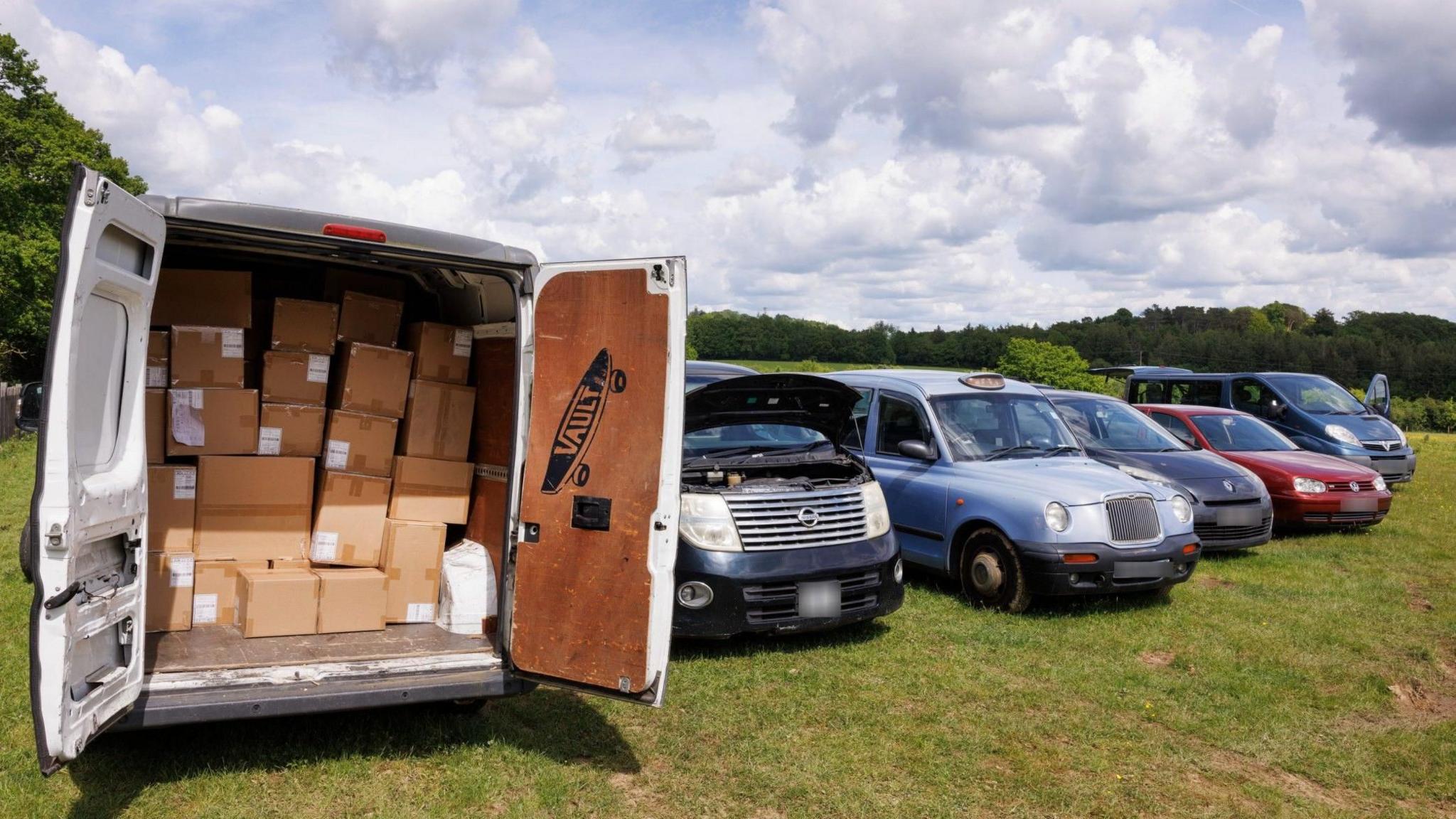
- Published23 February 2024
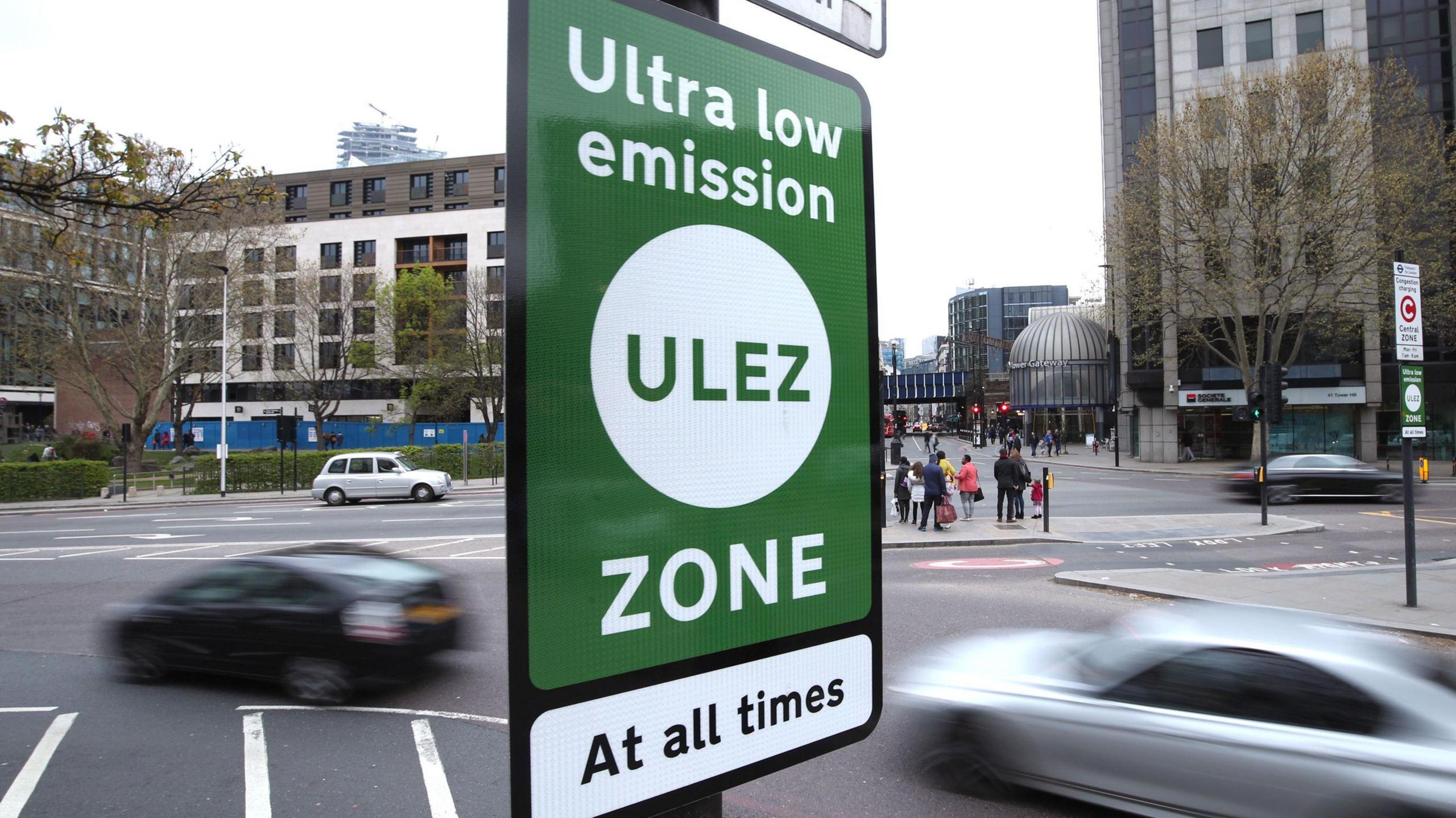
- Published22 August 2023
